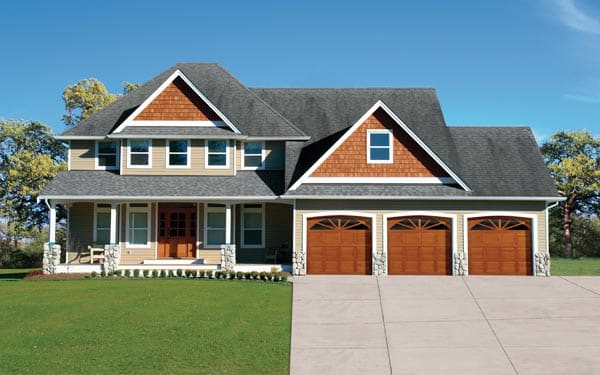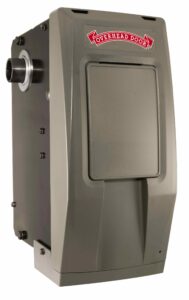Are you looking to make your home more energy-efficient? One area that is often overlooked when it comes to energy efficiency is the garage. Most people think about windows, doors, and insulation as ways to improve their home’s energy use. But did you know that a garage door can also have a significant impact on your home’s overall energy efficiency?
At Overhead Door of Akron, we are passionate about helping homeowners in the greater Akron, Canton, and Cleveland areas achieve maximum energy savings. In this blog, we will discuss how garage doors play a role in home energy efficiency and what you can do to make your garage more energy efficient.
Why Does Garage Door Energy Efficiency Matter?
You may be wondering why it is essential to consider the energy efficiency of your garage door. Well, for starters, the garage is often one of the largest spaces in a home that is not climate-controlled. This means that any changes in temperature outside will also affect the temperature inside your garage. And since most garages are attached or adjacent to the main living area of a home, this can have a significant impact on your overall energy usage.
An inefficient garage door can lead to excessive heat loss in the winter and heat gain in the summer, resulting in higher energy bills. Additionally, a poorly insulated garage can affect the overall comfort of your home. For example, if your garage is hot or cold, it will transfer that temperature to any adjacent rooms, making them less comfortable.
Furthermore, an energy-inefficient garage door can also contribute to environmental issues by increasing your carbon footprint. By reducing your home’s energy consumption, you can help mitigate climate change and do your part for a more sustainable future.
Factors Affecting Garage Door Energy Efficiency
Several factors play a role in how energy-efficient your garage door is. These include:
- Material: The material of your garage door can impact its energy efficiency. For example, a steel door with polyurethane insulation will have a higher R-value (a measure of thermal resistance) than a non-insulated wooden door.
- Insulation: As mentioned above, insulation is crucial for energy efficiency in a garage door. Insulated doors help to keep out outdoor temperatures and prevent heated or cooled air from escaping.
- Size: The size of your garage door can also affect its energy efficiency. Generally, larger doors will have more significant heat loss or gain potential than smaller ones.
- Weatherstripping: Weatherstripping helps to seal any gaps around the garage door and prevent air leakage, improving energy efficiency.
- Orientation: The direction your garage door faces can also affect its energy efficiency. For example, a south-facing door will absorb more heat in the summer than a north-facing one.
In conclusion, the impact of a garage door on home energy efficiency should not be underestimated. By considering factors such as material, insulation, and weatherstripping and taking steps to improve these areas, you can make your garage more energy efficient and, in turn, reduce your home’s overall energy usage. At Overhead Door of Akron, we offer a variety of energy-efficient garage doors and can also help with maintenance and repairs to ensure optimal performance. Contact us today at 330-929-3452 to learn more about how we can help you achieve maximum energy savings for your home.




